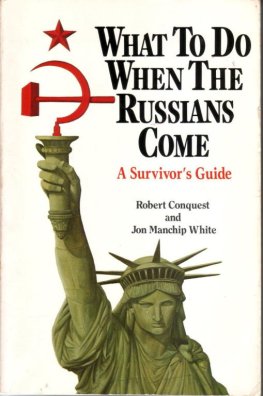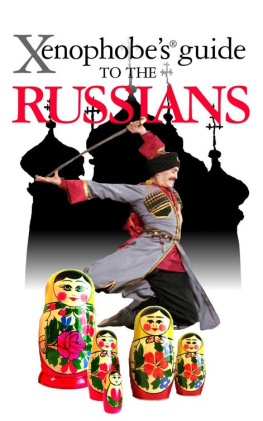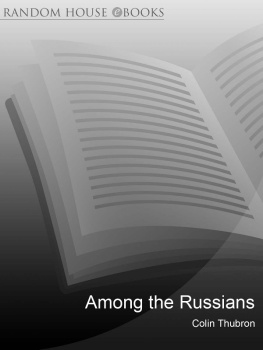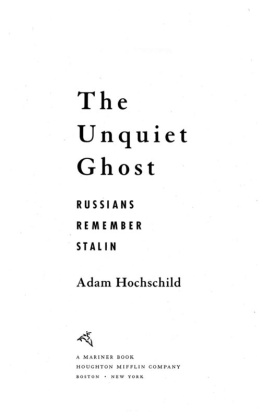Robert Conquest - What to Do When the Russians Come
Here you can read online Robert Conquest - What to Do When the Russians Come full text of the book (entire story) in english for free. Download pdf and epub, get meaning, cover and reviews about this ebook. City: New York, year: 1984, publisher: Stein and Day Inc., genre: Non-fiction. Description of the work, (preface) as well as reviews are available. Best literature library LitArk.com created for fans of good reading and offers a wide selection of genres:
Romance novel
Science fiction
Adventure
Detective
Science
History
Home and family
Prose
Art
Politics
Computer
Non-fiction
Religion
Business
Children
Humor
Choose a favorite category and find really read worthwhile books. Enjoy immersion in the world of imagination, feel the emotions of the characters or learn something new for yourself, make an fascinating discovery.
- Book:What to Do When the Russians Come
- Author:
- Publisher:Stein and Day Inc.
- Genre:
- Year:1984
- City:New York
- ISBN:0-8128-2985-9
- Rating:3 / 5
- Favourites:Add to favourites
- Your mark:
- 60
- 1
- 2
- 3
- 4
- 5
What to Do When the Russians Come: summary, description and annotation
We offer to read an annotation, description, summary or preface (depends on what the author of the book "What to Do When the Russians Come" wrote himself). If you haven't found the necessary information about the book — write in the comments, we will try to find it.
What to Do When the Russians Come — read online for free the complete book (whole text) full work
Below is the text of the book, divided by pages. System saving the place of the last page read, allows you to conveniently read the book "What to Do When the Russians Come" online for free, without having to search again every time where you left off. Put a bookmark, and you can go to the page where you finished reading at any time.
Font size:
Interval:
Bookmark:
Robert Conquest and Jon Manchip White
WHAT TO DO WHEN THE RUSSIANS COME
A Survivors Guide
A NOTE TO THE READER
It is widely accepted that the United States now faces a real possibility of succumbing to the power of an alien regime unless the right policies are pursued.
It is not the purpose of this book to argue which policies are right. Its aim is quite different. It is, first, to show the American citizen clearly and factually what the results of this possible Soviet domination could be and how it would affect him or her personally; and second, to give some serious advice on how to survive.
How can you, the individual American citizen, expect your personal record to be treated by the new masters?
What kind of existence, under Soviet domination, can you look forward to?
Will there be any possibility of protest, resistance, and revolt; and what forms might they take?
This book offers you insights into what it will be like and advice as to survival behavior in the far-from-impossible event that this is what the future holds in store.
You should not take what we say as some horrible fantasy. Every word is based on the actual experience of hundreds of millions of ordinary people, in a dozen countriespeople like yourself, most of whom had no more thought of the possibility of what actually happened to them than most Americans do today.
FOREWORD
Try to picture yourself as you might be in ten years time, perhaps less.
We are assuming that you are one of the lucky ones.
None of your family have been killed, except a distant cousin shot in the street early on, and your brother-in-law in the marines who was executed as a war criminal. None of the women have been raped.
Your job was one of the many that ceased to exist, and your savings have been extinguished by the currency reform, but you had enough food and fuel to carry you through until you found your present low-paid post in one of the huge new rationing offices.
Your home was not wrecked or even damaged. And it was not impressive enough to be confiscated for the new elite or for Soviet officers. You escaped strangers being billeted on you by quickly settling into it a couple of families of friends who had lost theirs. You get on reasonably well, and although there is inevitable friction and the occasional flare-up, you are long since used to the overcrowding.
You had a tiring trip to work, changing twice between jam-packed buses; but it really is too far to bicycle. Once in the office things were fairly quiet, except that the ex-economics professor, who sweeps the floors and tidies up the washrooms, grumbled when they came around for the weekly compulsory contribution to the State Loan. How long can he last if he keeps doing that?
On your return journey you got your permit to visit your old parents in a neighboring state next month, after waiting only an hour. And when you drew the potato ration, you were pleased to find it was practically the right weight and of reasonable quality, capable of making a decent meal when you mix it with one of your bouillon cubes. Whats more, while waiting in line for it, you met a friend who told you where some apples were available, and you hurried over there and managed to get a couple.
So here it is, only nine at night and you are already back home. You have not had time to look at the paper, but when you settle down to read it, there is little except news of Soviet industrial and artistic achievements and speeches by American Communists recently back from Moscow. You do notice an account of the trial of a dozen local officials for sabotage; but they are not from the Department of Agriculture, so this does not mean another famine. You start to remark on this, but you quickly break off. The children are around, and the younger ones might unthinkingly repeat what you say somewhere outside or at school.
Your ears catch the crunch of boots at the end of the street.
A Soviet platoon goes past. You automatically draw back still farther from the window. But it is only a routine patrol, not one of the special squads, so you relax as you see the helmets flickering in the red glow of the lone street lamp.
Yes, so far you have certainly been lucky. Next door, the old schoolteacher was arrested a few weeks ago for failing to abuse President Truman in a history lesson. Half a block away, the chairperson of the local Democratic party resisted arrest and was shot on the spot. (Her Republican opposite number, from another section of town, is in the uranium mines in Northwest Canada and rumored to be on the point of death.) The widow in the house across the way had a son in the FBI, who has vanished without trace. And the Chinese couple a little farther down have been deported.
Suppertime. A delicious smell from the Primus stovethe potatoes are nearly boiling. Tomorrow is another day. Today, at least, has been uneventful a good day.
This may not happen.
But, on the other hand, IT MAY
How could such a state of affairs come about?
First, we will consider the ways in which, after the initial confrontation, the Soviets will establish their grip on the political organization of the United States and the ways in which this will affect the ordinary citizen.
Then, we shall deal with the most immediate dangers facing you if you are not one of the lucky ones: arrest and dispatch to a labor camp or exile, a fate that will not overtake everybody but one that will be common enough to be a very serious risk to almost all of you, affecting probably some 20 percent of the adult population. We seriously believe that the advice we give in this context, and on the possibility of escaping abroad, could save thousands of lives.
For those who have not been arrested, or not yet, we describe the problems of ordinary life, with advice on how to cope with them.
We go on, in chapter 5, to consider how particular people are likely to fare. For our readers are not merely citizens. They are farmers, industrial workers, doctors, students, clergymen; they are Republicans, Democrats, Socialists, New Leftists; they are Polish Americans, blacks, Chinese Americans, Jews: and they are all the other things Americans are.
We then analyze the quality of life: coping with the bureaucracy and with informers, crime and travel, conscription into the American Peoples Army for wars abroad, personal relations at home.
And we conclude with an examination of the prospects of resistance, in both the short and the long terms, concluding that it is even possible that some readers may survive to see the rebirth of freedom.
Let us repeat, everything we tell has been the experience of great populations. We are not even presenting a worst case. We have not transferred to America the mass slaughters such as the Terror of 19371938 in the USSR, that have been inflicted in a number of Communist countries. Things may be worse than we have outlined. At any rate, they will hardly be better.

1. THE FIRST SHOCK
THERE ARE SEVERAL ways in which disaster might strike America. We cannot totally exclude an all-out nuclear war that is so destructive that little is left of either side; or one in which America is largely destroyed with far less Soviet loss, resulting in the occupation by Moscows troops of a ruined and depopulated landa scenario quite commonly found in Soviet military literature.
Such near-total annihilation is hard to envisage, although it would be irresponsible for anyone to ignore the possibilities. But what seems more likely, given the Soviet achievement of effective superiority, would be the crumbling of American resistance either after a limited Soviet nuclear strike or simply under a threat against which the United States would have become practically defenseless.
Font size:
Interval:
Bookmark:
Similar books «What to Do When the Russians Come»
Look at similar books to What to Do When the Russians Come. We have selected literature similar in name and meaning in the hope of providing readers with more options to find new, interesting, not yet read works.
Discussion, reviews of the book What to Do When the Russians Come and just readers' own opinions. Leave your comments, write what you think about the work, its meaning or the main characters. Specify what exactly you liked and what you didn't like, and why you think so.








